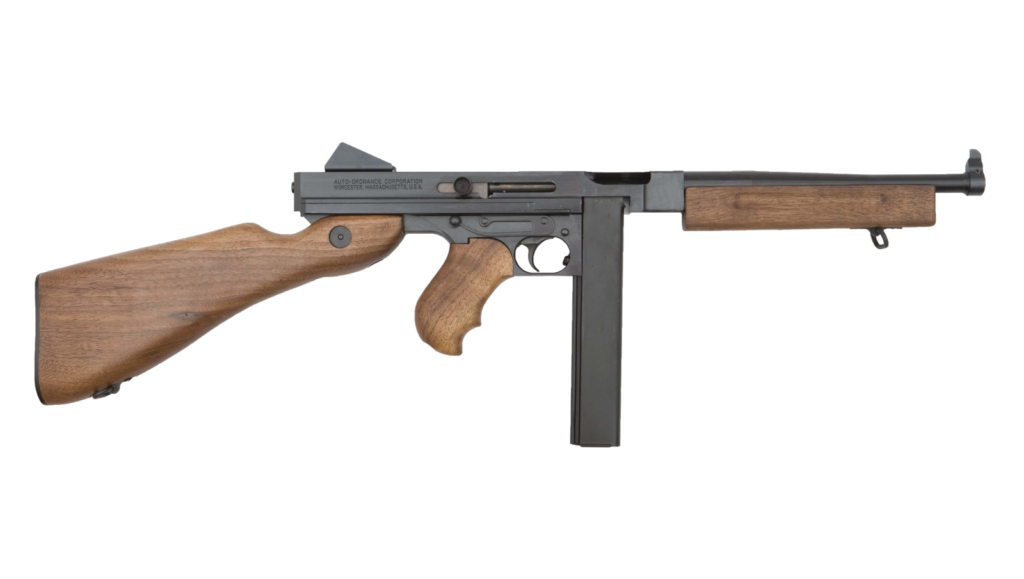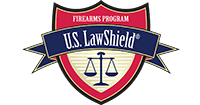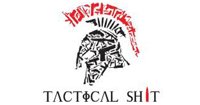The Thompson submachine gun (also known as the “Tommy gun”, “Chicago typewriter”, “Chicago piano”, “trench sweeper”, or “trench broom”) is a blowback-operated, selective-fire submachine gun, invented by United States Army brigadier general John T. Thompson in 1918. It was originally designed to break the stalemate of trench warfare of World War I, but was not finished until after the war ended.
The Thompson saw early use by the United States Marine Corps during the Banana Wars,[25] the United States Postal Inspection Service, the Irish Republican Army, the Republic of China, and the FBI following the Kansas City Massacre.
The weapon was also sold to the general public. Because it could be obtained so easily, the Thompson became notorious during the Prohibition era as the signature weapon of various organized crime syndicates in the United States in the 1920s. It was a common sight in the media at the time, and was used by both law enforcement officers and criminals.
The Thompson was widely adopted by the U.S. armed forces during World War II, and was also used extensively by other Allied troops during the war. Its main models were designated as the M1928A1, M1 and M1A1 during this time. More than 1.5 million Thompson submachine guns were produced during World War II.
It is the first weapon to be labelled and marketed as a “submachine gun”.
The original selective-fire Thompson variants are no longer produced, although numerous semi-automatic civilian versions are still being produced by the manufacturer Auto-Ordnance. These models retain a similar appearance to the original models, but have various modifications in order to comply with US firearm laws.




























